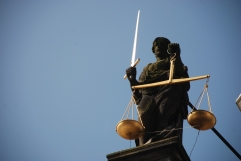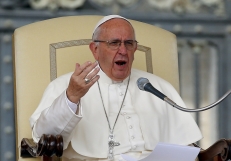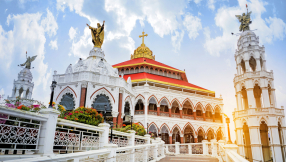Once again we can thank France for highlighting how oppressive secularism can be.
France's socialist prime minister, Manuel Valls, has suggested Muslim headscarves should be banned from universities. He made the comment in a long interview with the daily Liberation and went on to say he thought French people believed Islam was incompatible with French society.
The predictable backlash ensued. Abdallah Zekri, head of the Observatory on Islamophobia and a member of the French Council of the Muslim Faith, told BFM TV: "We're fed up of being stigmatised ... [and] of this populist discourse which is worse than the far-right."
But the problem is this is a recurring theme. Time and again the French government has proved it cannot handle public expressions of religion. No matter how peaceful or innocuous, France's much vaunted principle of laïcité cannot get its head around religion being displayed outside private homes.
It is just the latest example how utterly unfit the principle is for a modern country.
It has become nothing more than a thinly veiled excuse for religious intolerance and persecution.
Secular philosophy aims to rid religion from public life and create a "neutral space". It was born out of the religious wars that tore Europe apart in the 16th and 17th centuries. Enlightenment philosophers such as John Locke observed the conflict religion caused and saw the answer in the separation between church and state. Religion should be removed from matters of governance, they concluded, so a safe space can be created for all to participate in.
The aim was a noble one. Early secularists believed by removing religion, you would enable everyone to participate in civil society free from religious violence or persecution.
The principle has become ingrained in French national identity, especially since the battle between the Catholic Church and the state was decisively won by the state in 1905.
But modern secularism is no longer inclusive. In fact it actively excludes all people of faith, not least Muslims.
Children of Islamic parents in some towns have been told that for school lunches it is "pork or nothing". The option for Muslims, Jews and many Hindus who do not want to eat pork has been removed as the desire to create a safe space from religion has turned into an outright attack on religious observance. "From now on, that's the way it is," one Muslim parent was told.
The fundamental problem with secularism is it completely fails to understand the significance of religion to someone's identity. Asking someone of faith to keep it private is like asking them to keep their childhood private. It is like asking someone to ignore the fact they were adopted. Or ignore the fact they are married. For a religious person their faith is a fundamental part of who they are. Asking them not to let it influence their decisions in public life is nonsensical.
Far from creating a stable society with a safe and "neutral" public space, a secular society is far more unstable and volatile because religious people feel they do not have a seat at the table. The explosive nature of modern French society has proved that.
The much prized laïcité is now nothing but barely disguised Islamophobia. And Muslims know they are not welcome.
It is time for France to drop the pretence it can rid public life of religion. It never has done and it never will.
A far more sensible approach is to include all voices. Religion is part of society because it is a part of the people who make up society. A genuinely multi-cultural society where all religions are celebrated and included, not ridiculed and excluded, is far stronger and healthier. There is an argument that true secularism, referred to as political secularism, aims to do just that. Political secularism, as opposed to philosophical or doctrinal secularism, wants to include all religions and none with an equal voice at the table. But given how different this is from how secularism was originally portrayed by Locke and others there is a case for saying proponents of political secularism should find a new name for the idea. Philosophical secularism, as demonstrated by laïcité, is utterly unfit for modern governance. It is unintelligent and displays a woeful ignorance of how religion affects people.
Thank you France for demonstrating this so clearly.

















